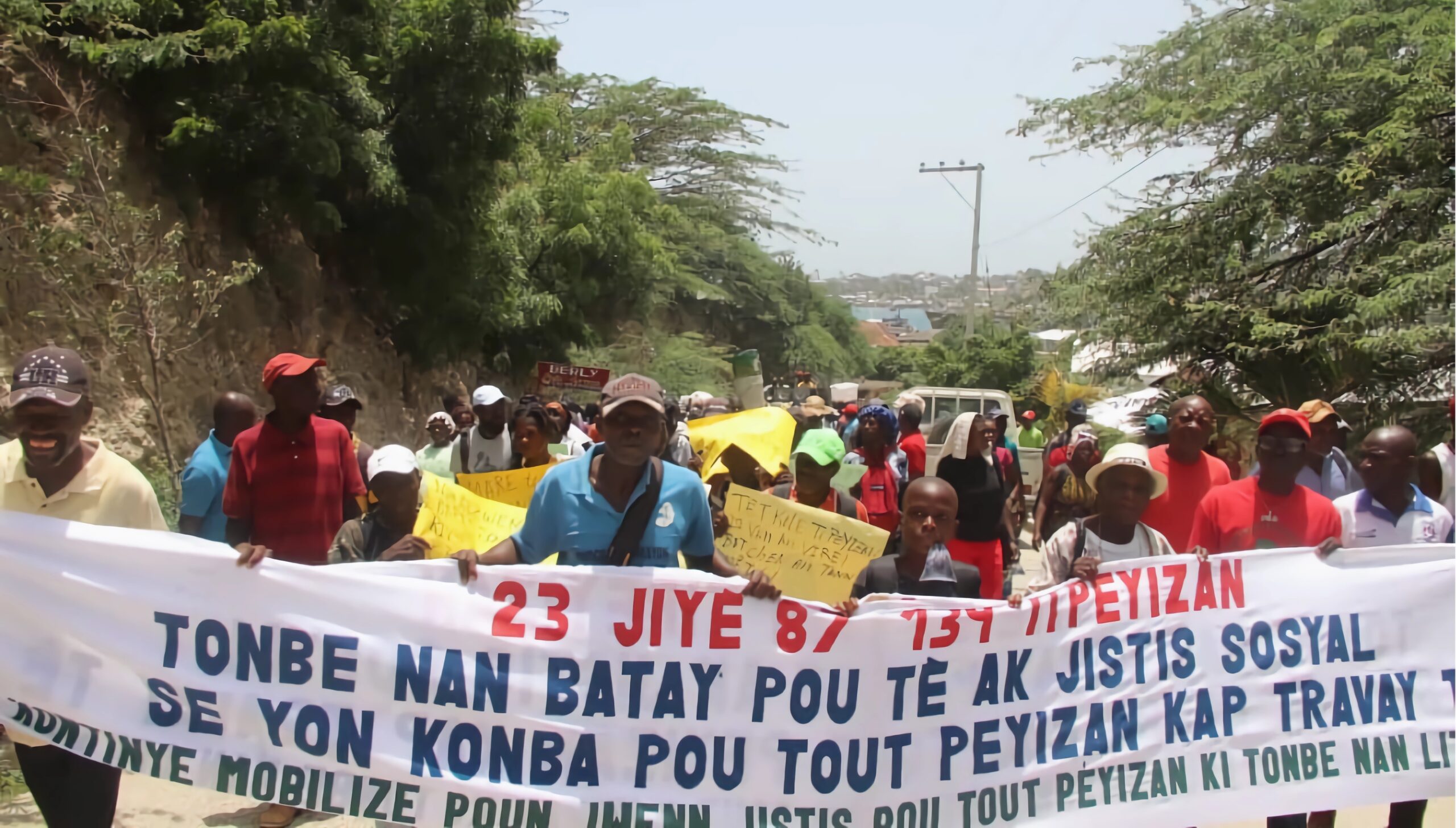Political statement from our member organization in Haiti, Tèt Kole Ti Peyizan Ayisyen, as part of the commemoration activities of the tragic massacre of 139 peasant-nes 36 years ago. At the heart of their ongoing struggle for justice is now a powerful political instrument, the United Nations Declaration on the Rights of Peasants, adopted in December 2018 and carried by La Via Campesina. This declaration legitimizes their fight, in Haiti and worldwide, to preserve their lands, thus claiming their fundamental rights and the sustainability of their essential role in feeding populations.
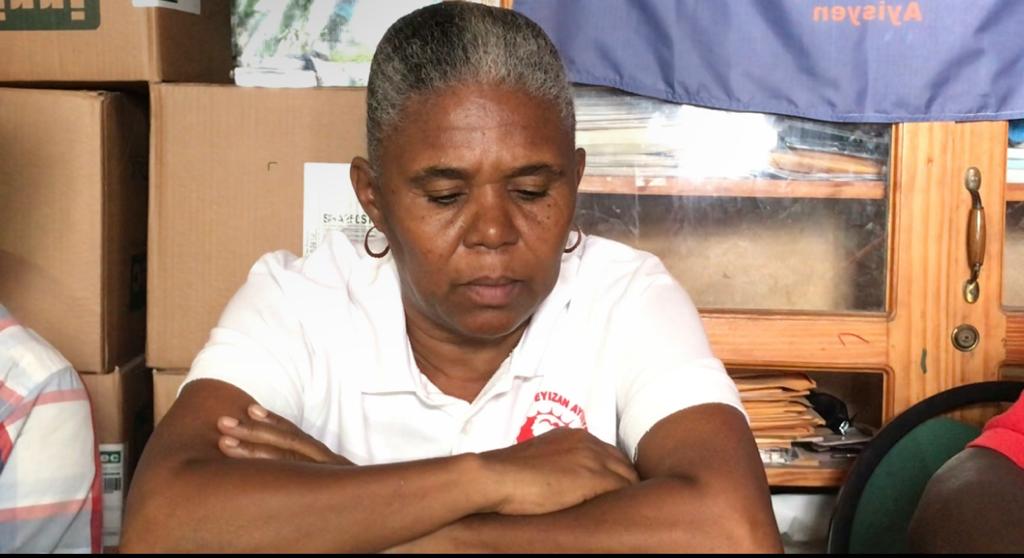
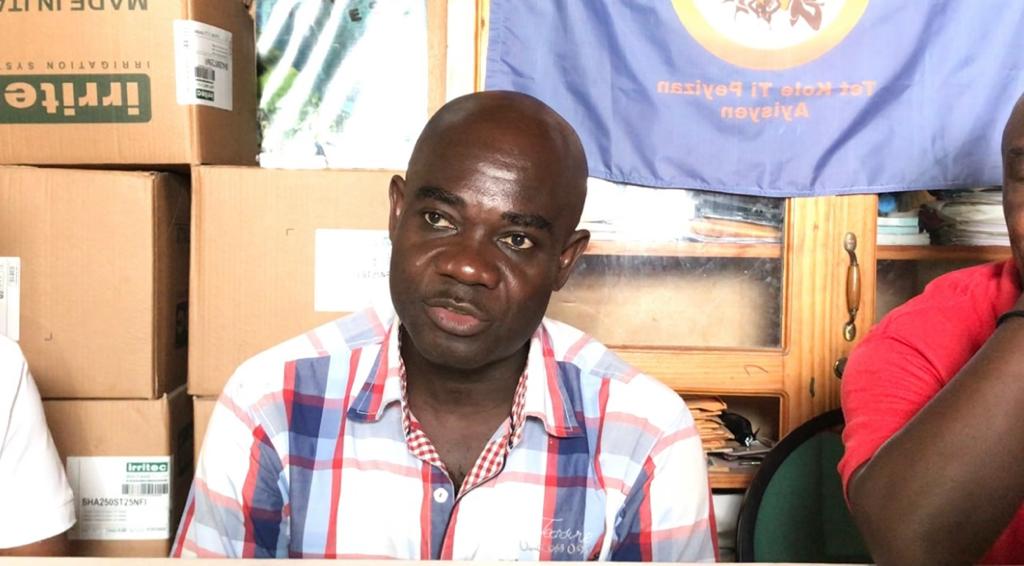
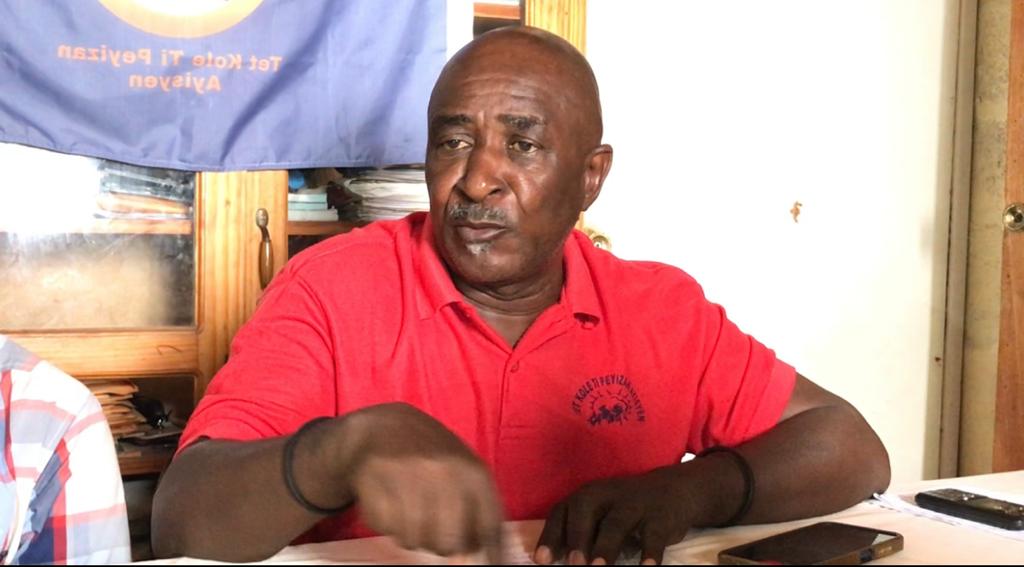
36 years ago, a tragedy struck Haitian peasantry when 139 peasants, members of the organization Tèt Kole Ti Peyizan Ayisyen, lost their lives in one of the largest massacres ever seen in the country. The regime of Henry Nanphy, the Lucas family, the Poitvien family, and a faction of the Catholic Church in collusion with the American embassy in Haiti were responsible for this terrible atrocity. This massacre is one of the bloodiest episodes in the country’s history. It occurred at a time when the assertive and political struggle of Haitian peasants, embodied by their leaders Jean Rabel and Marotière (7th section dependent on the municipality of Port de Paix), was flourishing.
These farmers, martyrs of the peasant’s struggle, fought to reclaim agricultural lands seized by powerful economic and political interests, while awaiting the rise of a popular power that would implement comprehensive agrarian reform, guaranteeing their rights. They sought access to irrigation systems to strengthen food production, entry into markets for selling their products, proper technical support, and access to quality agricultural inputs and appropriate equipment.
Their struggle also aimed to ensure fair access to justice for peasants facing injustice and aggression, victims of exploitation and domination by foreign corporations, large landowners, usurers, and the Haitian elite. They demanded the economic right to return to a socially responsible economy, including the sale of Creole pigs, which was the basis of their survival. The disappearance of Creole pigs orchestrated by imperialism, the Haitian state, and multinational companies is a social crime that shocks the collective conscience.
These peasants demanded the establishment of a state capable of guaranteeing the fundamental rights of the peasantry, such as the right to live in dignity and access basic social services. Their demands posed significant political, economic, social, and cultural challenges, threatening the interests of dominant classes, especially those supporting the American imperialist project. The struggle of peasants questioned the implementation of neoliberal policies in Haiti and challenged the subservience of the failing state to foreign powers.
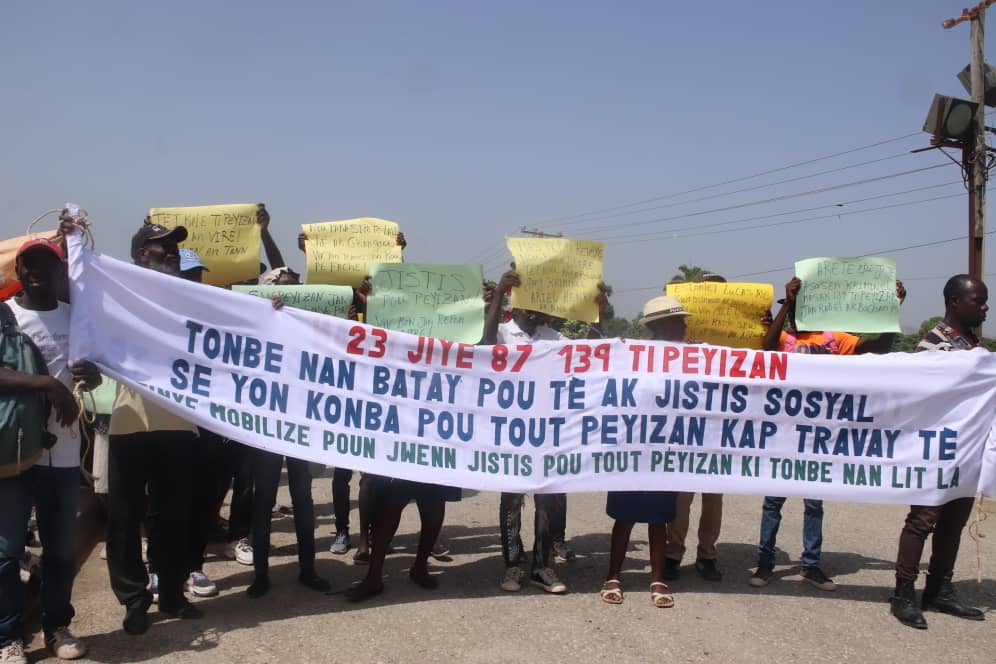
Despite 36 years having passed, the situation remains unchanged. The regime of PHTK, in power for over 12 years in Haiti, continues to implement the sinister plans of imperialists in collaboration with the Core Group (consisting of the US, France, Canada, etc. embassies), the local bourgeoisie, and using gangs as armed agents. They continue to seize lands for the construction of industrial and tourist free zones, turning peasants into agricultural workers.
The country is now facing an unprecedented situation. Under the complicit and protective gaze of state authorities, armed gangs have besieged the Haitian capital. They engage in kidnappings, violence against women and children in low-income neighborhoods, pillage, and blockade major national roads, especially those leading to important production areas.
The phenomenon of land grabbing spreads throughout the country, with persecution of peasant organizations, as currently observed in the municipality of Montrouis, particularly in the locality of Piatre, where in 1990, 430 houses were set on fire and 11 peasants killed. In the North-East, in Pitobè and Prévoyance, four peasants remain imprisoned to this day. Currently, in the Department of the Center, at the MPP farm, several hundred peasants are forced to flee due to threats from heavily armed individuals. Not to forget the decision made on February 8th, 2021, by the late President Jovenel Moïse to grant 8600 hectares of land, where 6000 peasants were working, to a bourgeois named Andy APED for monoculture and the export of stevia used in Coca-Cola production.
It must be acknowledged that Haiti’s difficult situation is the result of decades of poor governance and policies detrimental to exploited and oppressed masses, especially the peasant class. In light of this critical situation, the Haitian people can no longer wait. Therefore, Tèt Kole stands alongside the valiant Haitian people who continuously resist the aggression of local mafia actors supported by embassies of imperialist powers and the interference of the international community in the country’s politics and governance.
Finally, after these 36 years of massacre, the Tèt Kole Ti Peyizan Ayisyen organization reiterates its determination to fight for the intellectual and material perpetrators of this heinous act to be arrested, tried, and convicted.
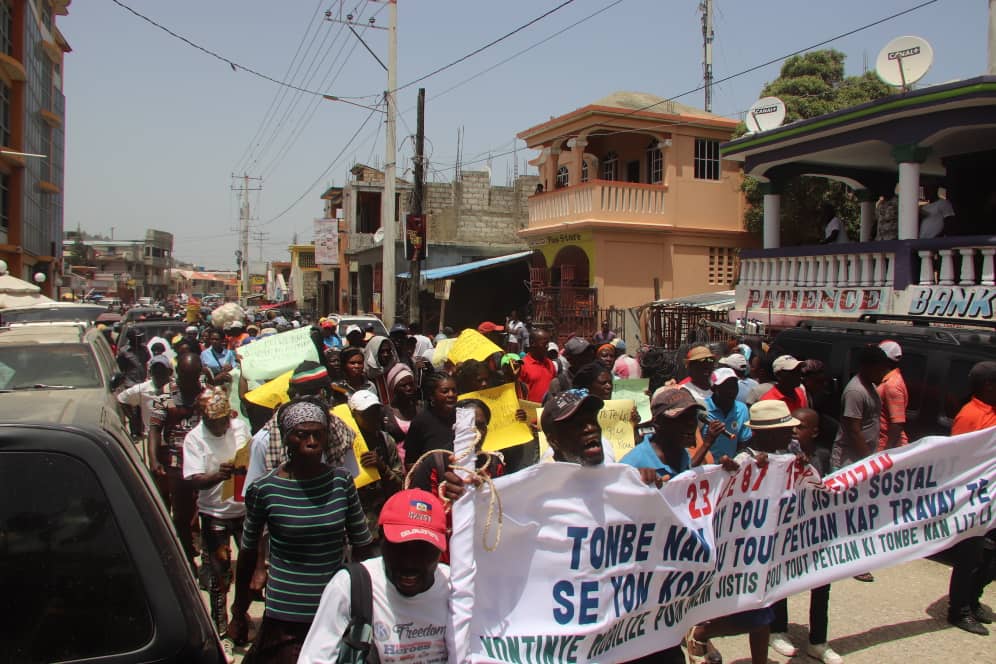
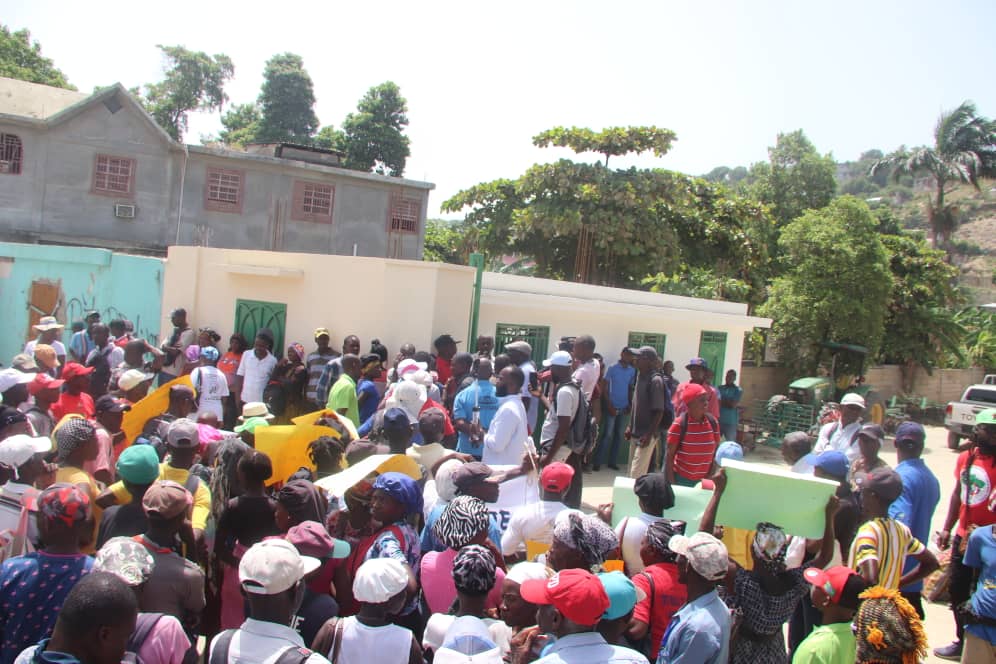
Long live peasant organizations!
Long live the self-determination of the Haitian people!
Long live a new responsible state where justice is attainable for all!
No to massacres and land grabbing from peasants!
Down with de facto, illegal, and unpatriotic governments!
No to international interference in the country’s internal affairs!

